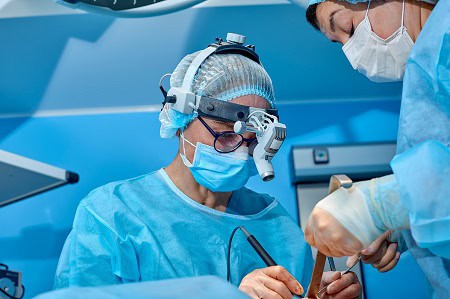Brain Surgery for Addiction
by Thaddeus Camlin, Psy.D.
 Addiction treatment needs improvement. Exploring new methods is essential to advancing the field. To imagine the latest radical approach to treating addiction one might envision an amalgamation of electro-shock therapy and trepanning. Brain surgery for addiction is not a futuristic concept at the dawn of its conception. On the contrary, brain surgery for addiction is happening now in China and a clinical trial is scheduled in West Virginia this year. Like any emerging treatment, brain surgery to treat addiction is worth a closer look to consider potential costs, benefits, risks, rewards, and ethical delivery of services.
Addiction treatment needs improvement. Exploring new methods is essential to advancing the field. To imagine the latest radical approach to treating addiction one might envision an amalgamation of electro-shock therapy and trepanning. Brain surgery for addiction is not a futuristic concept at the dawn of its conception. On the contrary, brain surgery for addiction is happening now in China and a clinical trial is scheduled in West Virginia this year. Like any emerging treatment, brain surgery to treat addiction is worth a closer look to consider potential costs, benefits, risks, rewards, and ethical delivery of services.
The Technique
The brain surgery technique used to treat addiction is deep brain stimulation (DBS). DBS is already an established treatment for Parkinson’s symptoms that cannot be managed with medications. The surgery involves drilling two small holes in the skull and feeding electrodes into deeper parts of the brain like the nucleus accumbens. A battery pack is also implanted into the chest to power the electrodes. The thinking in using DBS for addiction is that the electrodes could act like a pace-maker modulating activity in the reward system. If all goes well, in theory, one might be able to turn off cravings with the flick of a switch.
Side-Effects of Brain Surgery for Addiction
Testimonials from successful patients are compelling. The ability to turn off cravings with a remote control brain stimulator is enticing. Some concerns have also been raised. There is no scientific consensus on where electrodes should be placed. Two U.S. labs dropped clinical DBS trials that were underway because the preliminary results didn’t justify the risks of the treatment. In general, DBS carries potential side effects like apathy, depression, euphoria, hallucinations, and personality changes. However, adverse side-effects are potentially reversible through adjustments and recalibrations of electrodes.
Addiction Treatment and an Ethical Responsibility
Trials of DBS for addiction are moving forward. With the current risks of DBS, well-designed, safe, ethical trials are critical to ensure patient safety. It is also worth noting that it appears easier to gain FDA approval for researching experimental brain surgery for addiction than psychedelic-assisted treatment. If we are going to move forward with brain surgery research we have an ethical responsibility to move forward with psychedelic treatment. To date, psychedelic treatment for addiction has a stronger evidence base than brain surgery and it is far safer and less invasive. Most importantly, all areas of promise in all treatments should be given adequate attention and investigation to ensure that we continue to improve and advance the helping professions.
If you or a loved one are interested in alternative approaches to addiction treatment, our outpatient services might be a good fit. Reach out today – you don’t have to do this alone.
